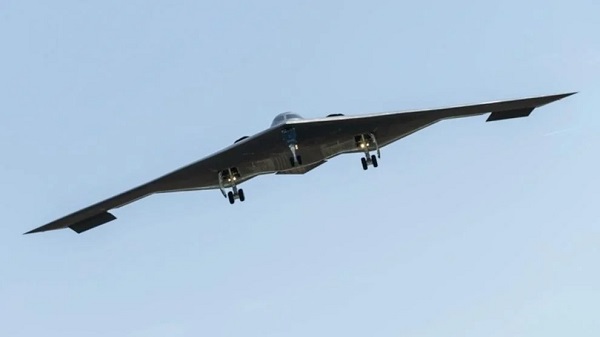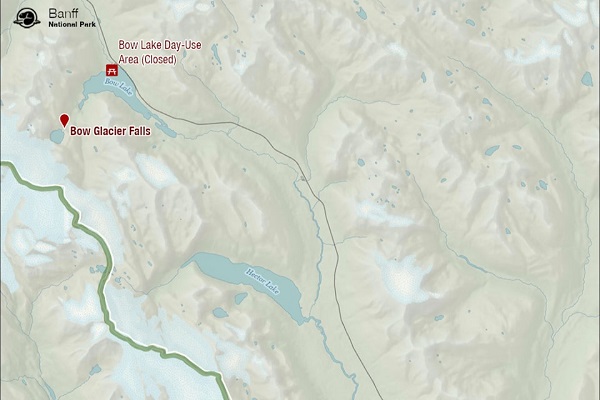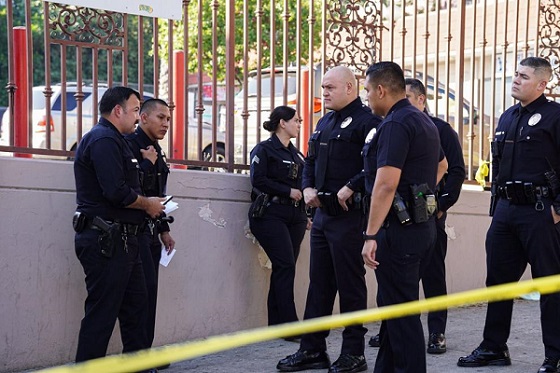conflict
Trump warns Russia not to give Iran nukes after US bombing run
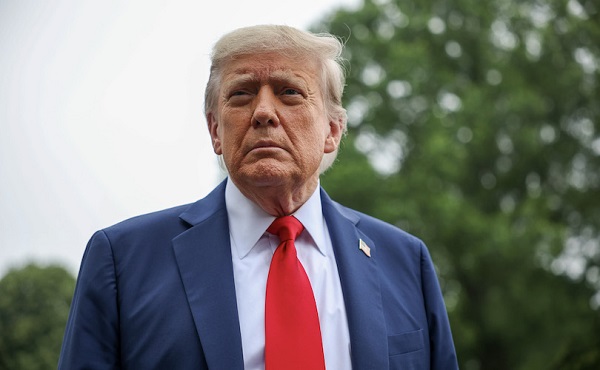
From LifeSiteNews
Former Russian President Medvedev suggested other countries could give Iran nukes; Donald Trump warned him not to use the ‘N word’ so ‘casually.’
President Donald Trump issued a stern warning to former Russian President Dmitry Medvedev Monday after the latter suggested that other nations might supply Iran with nuclear weapons in the wake of America’s surprise weekend strike against the Iranian nuclear program.
Business Insider reports that Medvedev, who now serves as an advisor to current Russian President Vladimir Putin, condemned the U.S. operation to bomb Iran’s three main nuclear facilities, which Trump only announced Saturday evening after its completion following Israeli strikes based on their assessment that the Islamist regime was too close to completing a nuclear weapon to wait any longer.
“A number of countries are ready to directly supply Iran with their own nuclear warheads,” Medvedev claimed.
Business Insider spoke to several experts who cast doubt on the claim, citing both technical infeasibility and the political ramifications, but Trump took a more strident approach in response.
“Did I hear Former President Medvedev, from Russia, casually throwing around the ‘N word’ (Nuclear!), and saying that he and other Countries would supply Nuclear Warheads to Iran? Did he really say that or, is it just a figment of my imagination?” Trump asked via Truth Social. “If he did say that, and, if confirmed, please let me know, IMMEDIATELY. The ‘N word’ should not be treated so casually. I guess that’s why Putin’s ‘THE BOSS.’”
“By the way, if anyone thinks our ‘hardware’ was great over the weekend, far and away the strongest and best equipment we have, 20 years advanced over the pack, is our Nuclear Submarines,” the president added. “They are the most powerful and lethal weapons ever built, and just launched the 30 Tomahawks — All 30 hit their mark perfectly. So, in addition to our Great Fighter Pilots, thank you to the Captain and Crew!”
For his part, “the boss” of Russia has also condemned the U.S. strike, offering unspecified “assistance to the Iranian people” and touting the Kremlin’s alliance with the Iranian regime, while claiming it would ultimately “stay neutral,” citing the large number of former Soviet subjects who reside in Israel.
Trump’s action has sparked a fierce divide between his online supporters. One faction contends the move was necessary to prevent nuclear war and consistent with the president’s position dating back to 2011, while the other calls it a betrayal of MAGA’s populist faction that could potentially escalate tensions and U.S. involvement in the region.
A recent Echelon Insights poll finds Republicans fairly evenly divided on the question of Iran intervention, but that those who identify primarily as Trump supporters were more likely to support action than those who identify primarily with the party.
conflict
Fordow obliterated: Israeli report confirms nuclear site inoperable
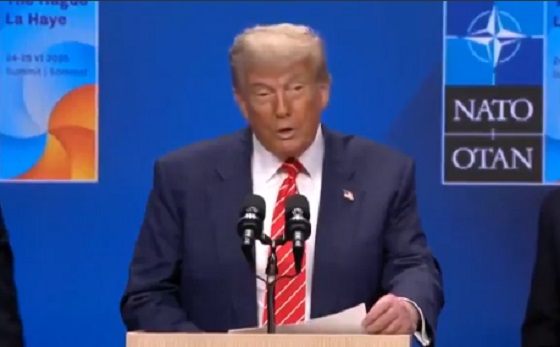
Quick Hit:
Israel confirmed Wednesday that the U.S. airstrike on Iran’s Fordow nuclear site over the weekend caused severe damage, rendering the facility “inoperable.” Israeli officials say the operation has significantly delayed Iran’s nuclear ambitions.
Key Details:
- The Israeli Prime Minister’s Office said the U.S. strike destroyed key infrastructure at Fordow and crippled Iran’s uranium enrichment capability at the site.
- The statement, delivered on behalf of the Israel Atomic Energy Commission, concluded that combined U.S. and Israeli strikes have set Iran’s nuclear weapons program back “by many years.”
- President Trump praised the success of the operation during remarks at the NATO summit in Brussels, calling it a “joint Israeli-American victory” and likening it to Israel’s decisive 1967 Six Day War.
.@POTUS reads a letter from the Atomic Energy Commission of Israel, stating that "the devastating U.S. strike on Fordow destroyed the site's critical infrastructure and rendered the enrichment facility totally inoperable." pic.twitter.com/KDFjLJ5pJf
— Rapid Response 47 (@RapidResponse47) June 25, 2025
Diving Deeper:
On Wednesday, the Israeli government released an official statement confirming that a U.S. airstrike on Iran’s Fordow nuclear facility had effectively shut down operations at the controversial site. The announcement came shortly after President Donald Trump previewed the findings during a press conference at the NATO summit in Brussels, noting that Israeli intelligence would provide details on the mission’s results.
“The devastating U.S. strike on Fordow destroyed the site’s critical infrastructure and rendered the enrichment facility inoperable,” read the statement issued by Prime Minister Benjamin Netanyahu’s office on behalf of the Israel Atomic Energy Commission. The report concluded that the joint American and Israeli military campaign had “set back Iran’s ability to develop nuclear weapons by many years.”
Officials added that this delay in Iran’s nuclear capabilities could continue “indefinitely,” provided Tehran is prevented from obtaining new sources of nuclear material.
Fordow has long been one of the most heavily fortified and secretive components of Iran’s nuclear program, buried deep beneath a mountain near the city of Qom. Intelligence analysts had previously identified it as a central hub for uranium enrichment—one of the final steps in developing a nuclear weapon.
President Trump, who authorized the airstrikes over the weekend, hailed the mission’s outcome as a strategic triumph. Referring to the brief but intense military confrontation as the “12 Day War,” Trump drew historical parallels to Israel’s famed Six Day War in 1967, underscoring the speed and precision of the operation.
“This was a joint Israeli-American victory,” Trump said. “And we achieved it without a prolonged conflict or massive deployment.”
The Fordow strike followed a series of precision attacks by Israel on other elements of Iran’s nuclear and military infrastructure. Together, the coordinated efforts appear to have dealt a major blow to Tehran’s nuclear ambitions, though experts caution that Iran’s response in the coming weeks remains uncertain.
The Israeli report marks the first formal assessment from a government directly involved in the strikes and is likely to shape future international discussions on Iran’s nuclear path.
conflict
Despite shaky start, ceasefire shows signs of holding
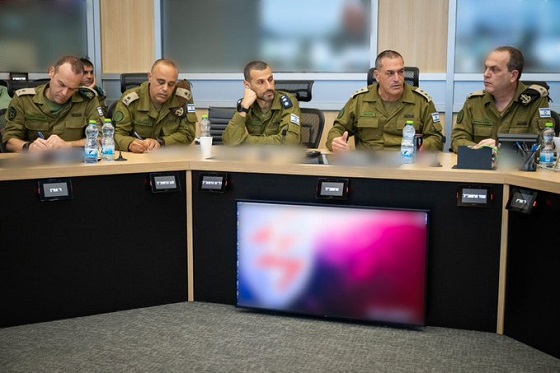
Chief of the General Staff LTG Eyal Zamir during a situational assessment following the beginning of the ceasefire with Iran
Quick Hit:
A fragile ceasefire between Israel and Iran appeared to hold Tuesday after early strikes from both sides threatened to unravel it. President Trump, who brokered the deal, criticized the violations and pushed both nations to stand down.
Key Details:
- Trump declared a “complete and total ceasefire” late Monday after Iran fired missiles at a U.S. base in Qatar in response to American strikes on its nuclear sites.
- Hours after the ceasefire was set to begin, Israel accused Iran of violating it by firing missiles into its territory—claims Tehran denied, even as explosions and air raid sirens rocked northern Israel.
- Trump publicly criticized both nations, stating “they don’t know what the f*** they’re doing,” and later confirmed that Israeli warplanes would turn back instead of launching a broader retaliation.
Diving Deeper:
Calm returned to parts of the Middle East Tuesday as a U.S.-brokered ceasefire between Israel and Iran began to settle in—though not without incident. For nearly two weeks, the region was on the brink of a broader war, ignited by Israeli strikes on Iranian nuclear and military targets and exacerbated by retaliatory attacks from Tehran.
President Donald Trump took credit for halting the hostilities. “ISRAEL is not going to attack Iran,” he wrote on Truth Social. “All planes will turn around and head home, while doing a friendly ‘Plane Wave’ to Iran. Nobody will be hurt, the Ceasefire is in effect!”
Despite the ceasefire’s official start early Tuesday morning, it nearly unraveled within hours. Israeli officials said Iran launched at least two missiles after the truce deadline, though they were intercepted before impact. Iran, meanwhile, denied any post-deadline strikes and blamed Israel for earlier attacks.
Speaking before leaving for a NATO summit, Trump said both sides had violated the agreement and did not hold back his frustration. “We basically have two countries that have been fighting so long and so hard that they don’t know what the f*** they’re doing,” he said, adding that he was “not happy with Israel.”
Still, the agreement held. Israeli Prime Minister Benjamin Netanyahu’s office said the country stood down from further attacks following a direct conversation with Trump. Israel claimed to have achieved its objectives, including weakening Iran’s nuclear and missile capabilities.
The conflict’s origin traces back to Israeli fears that Iran was nearing the threshold of building nuclear weapons, despite Tehran’s insistence that its program is for peaceful energy purposes. Over the weekend, the U.S. deepened its involvement by launching bunker-buster bombs on Iranian nuclear sites. Iran responded with a limited strike on a U.S. base in Qatar—an attack Washington said came with advance warning and caused no casualties.
Meanwhile, fallout from the war continues to spread. Israeli officials said at least 28 of their citizens have been killed and over 1,000 injured. Iranian casualty estimates are far higher, with nearly 1,000 reported dead, including hundreds of civilians and military personnel, according to the Human Rights Activists group.
Even as the ceasefire sets in, the risk of broader conflict remains. Pro-Iran militias in Iraq reportedly launched drone attacks on U.S. bases overnight, though they were intercepted without casualties. The U.S. has begun evacuating American citizens from Israel, and China—one of Iran’s few remaining oil buyers—has condemned the U.S. strikes, warning of a dangerous cycle of escalation.
Trump said he is not seeking regime change in Iran, walking back prior comments. “Regime change takes chaos and, ideally, we don’t want to see much chaos,” he told reporters aboard Air Force One.
Still, the situation remains volatile. The ceasefire, while welcomed, remains fragile—held together largely by Trump’s pressure campaign and the willingness of both sides to pause, if only momentarily, from what could have spiraled into an uncontrollable regional war.
-

 International2 days ago
International2 days agoPresident Xi Skips Key Summit, Adding Fuel to Ebbing Power Theories
-

 Alberta1 day ago
Alberta1 day agoAlberta Next Takes A Look At Alberta Provincial Police Force
-

 armed forces13 hours ago
armed forces13 hours agoIt’s not enough to just make military commitments—we must also execute them
-

 Alberta1 day ago
Alberta1 day agoCanadian Oil Sands Production Expected to Reach All-time Highs this Year Despite Lower Oil Prices
-

 Alberta1 day ago
Alberta1 day agoThe permanent CO2 storage site at the end of the Alberta Carbon Trunk Line is just getting started
-

 armed forces21 hours ago
armed forces21 hours agoNATO commits to 5% defense floor after Trump pushes allies to step up
-
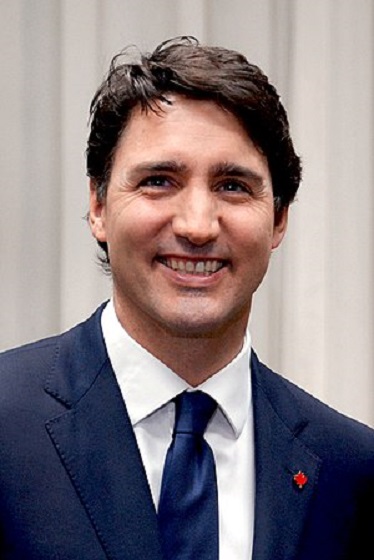
 Business2 days ago
Business2 days agoTaxpayers Federation presents Teddy Waste Awards for worst government waste
-

 conflict1 day ago
conflict1 day agoFordow obliterated: Israeli report confirms nuclear site inoperable
